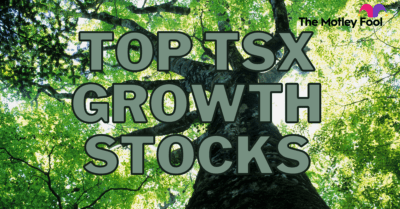Passively investing in index funds is probably one of the pragmatic things most investors can do. An index fund tracks the performance of the best and largest companies in the country, and is exceedingly difficult to out-perform, even for professional investors.
Canada’s benchmark S&P/TSX 60 Index is the most passive investors in the country track. The index includes 60 of the largest companies by market capitalization listed on the Toronto Stock Exchange. Over the past 10 years, since the financial crisis, the index has delivered a 114% return.
Canadian investors aren’t restricted to their domestic index, however. The most popular alternative to the Canadian benchmark is the S&P 500 index listed south of the border. America’s flagship index tracks the performance of the 500 largest companies listed in New York and is widely considered a benchmark for the global economy.
Adding exchange-traded funds that track both markets, such as the iShares Core S&P 500 Index ETF (TSX:XSP) and the iShares S&P/TSX 60 Index ETF (TSX:XIU) is a prudent move for most investors. But I want to take a closer look to compare the two indexes to see which one comes out on top.
Income
When it comes to dividend yield, America’s flagship basket of large companies lags behind. The S&P 500 is dominated by major technology companies that have traditionally preferred holding on to their cash and reinvesting it rather than distributing the immense cash hoard to shareholders.
According to the Financial Times, American companies are collectively hoarding an estimated $2 trillion in cash, which is nearly the size of the Canadian economy. This tightfisted approach has left the S&P 500 with a dividend yield of just 1.5%, whereas the TSX 60 offers a much healthier 2.9%.
Diversification
When it comes to the number of industries and the diversity of income sources, there’s no comparison — America is easily the winner. Technology, healthcare, communications, and finance each contribute 10% to 20% of the index, respectively.
Meanwhile, 35% of the TSX 60 is dedicated to financial companies. Many of these are large banks that may be overexposed to Canada’s highly leveraged housing sector. So, the Canadian index is much more concentrated than its U.S. counterpart.
Valuation
The S&P 500 has had an incredible run since the end of the 2008 financial crisis. Over the past 10 years, the index has nearly quadrupled. However, this unprecedented run has left the market overheated.
The index’s price-to-earnings (PE) ratio is now hovering around 22.16, whereas the TSX 60 is valued at 15. As a value-oriented investor, I prefer the domestic index because it’s simply not on the radar of many global investors, whereas the American economy is permanently in the global spotlight and is rarely, if ever, undervalued.
Bottom line
Canada’s economy is tied at the hip with the American economy, which means stocks in both countries have a high degree of correlation. However, there are key differences between the two economies that are reflected in their respective stock markets.
If you’re looking for diversification and a more global basket of stocks, the S&P 500 index might be more appealing. However, for value-oriented, income-seekers like me, the TSX 60 wins out.










